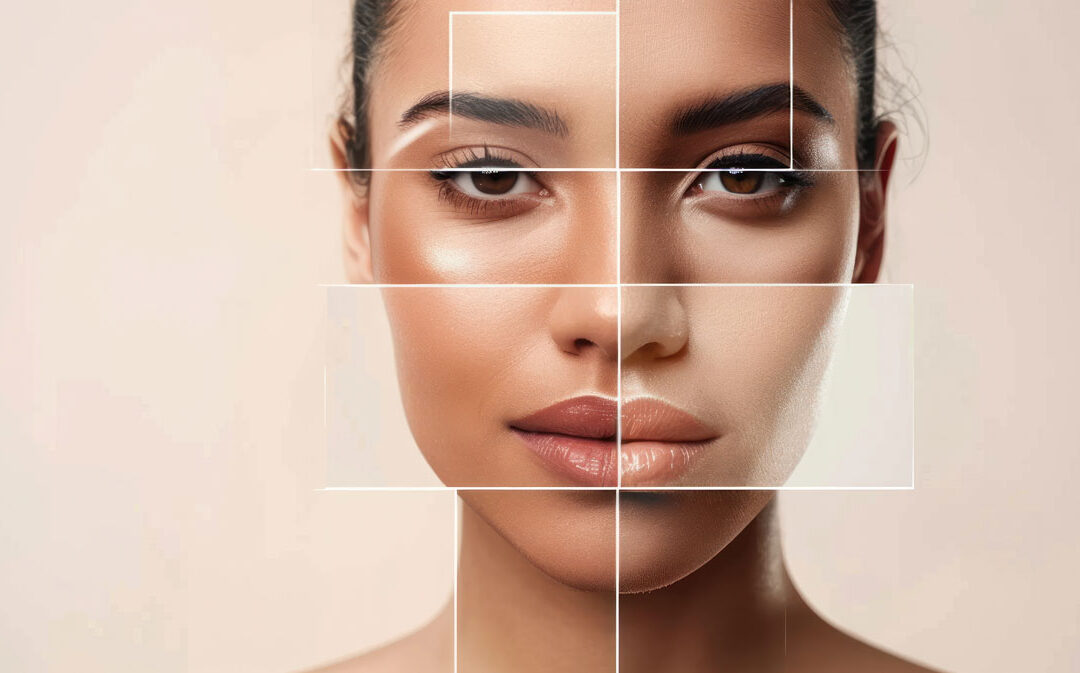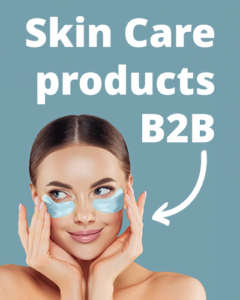All individuals are unique right down to their fingerprints and skin type. To maintain a healthy, radiant, smooth complexion, dermatologists agree that you should adopt the proper beauty routine. The five skin types behave differently with cleansing, moisturizing and applying topical formulas. It’s important to be choosy when purchasing skincare products to protect your complexion and offer your skin an ideal balance of nourishing, anti-aging ingredients.
Understanding Skin Type Characteristics
The American Academy of Dermatology (AAD) lists the five skin types. Each one needs a tailored approach:
- Normal. Your skin is not oily or dry and not prone to flakiness or breakouts. You may have small pores and a smooth, soft complexion.
- Oily. Your skin produces an abundance of sebum, and you may notice enlarged pores, acne and a greasy T-zone.
- Dry. Your skin can feel tight and have a flaky or rough texture. Your skin often feels dehydrated.
- Combination. Your skin can feature oily (T-zone) and dry areas such as the cheeks. You can develop blackheads and a shiny complexion.
- Sensitive. Your skin type can be dry, oily or combination and is often triggered by the environment or topical products that cause inflammation and burning.
Treating Skin Type Properly and Effectively
Normal
A normal skin type can handle just about any product from exfoliating cleaners to alpha hydroxy acid formulas without developing sensitivity. However, no one should ever use an aggressive manual method or harsh formula to care for their skin.
To maintain your balanced complexion during the day, try skincare formulas with vitamin C to brighten the skin and fight free radicals. At night, products with retinol or Retin-A help repair skin and sun damage and stimulate the production of fresh collagen.
Oily
An oily skin type will respond best to skincare products made of serums. Creams can be heavy and occlusive. Your treatments should mattify the complexion, and a good cleanser can remove the excess sebum and prevent breakouts.
Look for formulas that contain oil-busters, including glycolic acid, lactic acid or salicylic acid for effective toning.
According to a double-blind study, Retin-A is also excellent for an oily complexion. Tretinoin and retinol were found to reduce the appearance of large pores. This topical vitamin A form worn at nighttime can reduce oil production by overactive pores.
Dry
You don’t want to over-cleanse a dry complexion to strip your skin of its natural oils. Steer clear from cleansers and toners that contain alcohol or sulfates. Dermatologists recommend moisturizing at least twice daily to nourish and plump the skin with ingredients that help your skin type retain water and remain hydrated. Hyaluronic acid (HA) is one such amazing skincare dynamo that promotes suppleness for a fresh, dewy complexion. HA also contains anti-inflammatory and antioxidant properties to protect the skin from free radicals and environmental aggressors.
If retinol or Retin-A is too harsh for your dry complexion, peptides can serve as effective anti-aging products. These performing amino acid chains can smooth fine lines, soften wrinkles and enhance a stronger skin barrier function,
Combination
Skincare experts advise starting the day with a gentle, water-soluble cleanser. This could include a gel cleanser or foaming face wash. A clay mask is another treatment to try for combination skin to the T-zone area of the face to combat excess sebum.
If you want to exfoliate your skin gently, a BHA (salicylic acid) exfoliant in a leave-on formula can hydrate and balance your combination complexion and improve skin tone.
Sensitive
Sensitive skin means using more TLC or tender loving care and being cautious about layering powerful skincare formulas. A simple routine is best, according to leading dermatologists. For example, a vitamin C serum should be applied as a single product in the morning. Do not add a layer of retinol. Instead, apply the retinol sparingly at nighttime. A sensitive complexion can react negatively when strong formulas are layered.
Also, look for gentle, nourishing ingredients on the jars and tubes of your skincare products. Green tea, hyaluronic acid, aloe vera and chamomile are fantastic, soothing ingredients that won’t upset your complexion’s natural balance.
Stay away from scrubs and astringents. They are very drying and can further exacerbate breakouts, cause additional redness and even skin peeling.
Adjusting to Changes in Your Complexion
It’s no secret that a beautiful complexion needs a routine no matter your skin type. It’s essential to look at the ingredients of the skincare formulas you want to purchase to determine if these elements are kind and gentle to your complexion and can protect and balance the look and feel of your skin.
Don’t be alarmed if you see your skin type changing over time. New York City Dermatologist Michele Green, M.D., says that “environmental factors, age, hormones and other health-related issues” can cause it. She says to “listen to your skin.” Keep adjusting your skincare routine to compensate.








